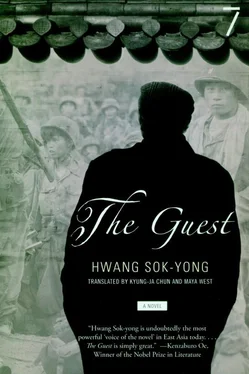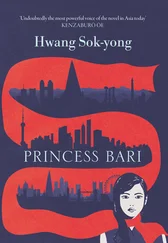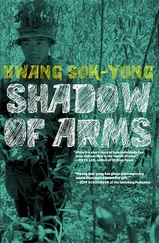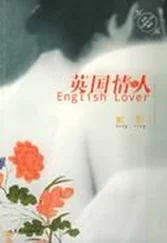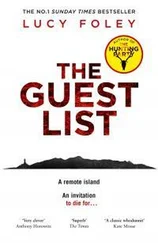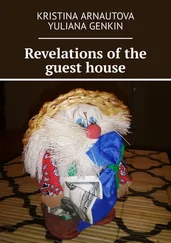I went to Sanjŏnghyŏn Church in Pyongyang with our father. You see, there’d been a proclamation regarding the reconstruction of the Church, made by the Protestant ministers who were imprisoned for seven, eight years during the Occupation for refusing to comply with the Japanese enforcement of daily worship at their heathen Shinto shrines. The proclamation declared that all pastors and presbyters who’d submitted to the Japanese now had to repent before God. After two months’ suspension from their posts, they would have to confess and publicly acknowledge that Shinto worship goes against the teachings of Christ. This proclamation, however, was greeted by a significant backlash from the very people it referred to. These folks claimed that they, too, had been persecuted by the Japs, often ending up in prison and, when their churches were dissolved, they strove to quietly maintain their faith underground. They insisted that their lot had been no less difficult — after all, they had forced themselves to endure humiliation at the hands of the Japanese so that they might continue to watch over all the Christians in hiding. That winter, at Changt’aehyŏn Church in Pyongyang, we organized an alliance of all the churches in the five northern provinces. It was not long after the Sinŭiju Incident, and we ultimately resolved to unite as one and fight against the Communists.
On March 1, the year after liberation, everything finally came to a head. We, the Christians, would soon become the mortal enemies of the Communists. With the arrival of the new year, the Joint Presbytery of the North had begun working to make preparations to celebrate the anniversary of the March First Independence Movement — our celebrations were to be based around our churches. Representatives from the Korean Independence Party and the Anticommunist Youth Corps had been visiting us from South Korea, helping to plan a nationwide uprising. We decided to hold a united prayer meeting, so our county, too, dispatched messengers to Pyongyang and Haeju. In the end, Christians from three counties: Ŭnnyul, Sinch’ŏn, and Chaeryŏng, made plans to meet at the Sŏbu Church in Chaeryŏng to celebrate Independence Day together. Some time earlier, Presbyter Cho Mansik had voiced his opposition to the Russian trusteeship of North Korea, a plan that’d been proposed at the Moscow Conference. As a result, Cho was placed under arrest at the Koryŏ Hotel in Pyongyang. We didn’t really know what was right — whether we should oppose this trusteeship or support it — we just knew that it was opposed by the South but supported by the North, and that our churches were unanimously against it.
The maintenance of law and order had been left to the Red Guards, which was composed of the various peacekeeping troops, the Women’s League, and the Democratic Youth League. They were all run by the provisional people’s committees. They’d impounded everything the Japanese left behind — ammunition, pistols, shotguns — and they knew they had the upper hand. All the same, we were determined to resist. Together with the young men from the Bible class I held in the back room of our Kwangmyŏng Church, we ran off leaflets on a mimeograph machine. At the time, I didn’t really understand what they said, but I assume it was along the same lines as the ministers’ sermons—“We must stop the state’s persecution of the Church,” “We are against the Communists,” “We are against the Russian military.” Hwanghae Province was full of leaflets and posters back then.
On the morning of March 1, Independence Day, we put everything aside and set off to the gathering at Sŏbu Church in Chaeryŏng, traveling in groups of three and five. Since the boys in the peacekeeping troops would have their eyes peeled all night long, many of us had gone earlier — they got to the church a couple days early and waited. Older presbyters, like our father, started their journey in the predawn darkness. Thousands of people were at Sŏbu Church by the time we began. Inside the chapel, people had to go up and sit on the platforms, and the aisles were absolutely packed — outside, the yard was teeming with people squatting or standing. The Christian Youth guarded the gate, armed with clubs and picks. No one dared to try coming in — they just watched us from a distance. Well, actually, a couple of Party members had managed to make their way in, but that was before we got there; they were already sitting in the chapel. The place was full of familiar faces, especially for those of us from the same villages. We knew all about each other’s family situations, everything, down to the littlest details, like who’d been beaten up by whom and who teased whom when we were kids.
Later on we would hear all about the big riots in Pyongyang, but in that moment, we all thought that the world was full of Christians, that it was just a handful of Communists making all the trouble. The minister told us that we Christians were the ones who had actually brought about the March First Movement and won our country’s independence and that our new mission was to make our nation, liberated by the grace of God, into a Christian country. He told us that the Communists were heathen trash, ignorant atheists who knew nothing of the fierce punishment that would rain down upon them from heaven, idiots who simply did anything the Soviet Union told them to do. Suddenly, out of nowhere, we heard someone shout, “Enough!”and then stones came whizzing through the air in every direction, shattering all the church windows. Clubs in hand we rushed out to head them off, but the Leftist youths were already fighting at the gates, forcing their way in. Some bastard let a couple of shots ring into the air.
Sangho cracked his skull that day, and I ended up writhing in the dirt, my shoulder struck by someone’s club. Our minister was dragged off by the police and the presbyters of the Joint Presbytery in Chaeryŏng, including Father, were arrested. Sangho and I hid at a fellow Christian’s house until late that night, and even after we returned to Sinch’ŏn, we couldn’t go home. We hid in a dugout for the next ten days.
There was a huge uproar in Pyongyang. The provisional People’s Committee had sent a directive out to all the churches, saying that the celebration of the March First Movement was not to be observed in an exclusive manner by churchgoers and that churches would have to participate in government functions. The churches claimed that this was discrimination against Protestants and that we should be free to hold Independence Day memorial services in whatever manner we chose. The battle of wills between church and state lasted a week. When the morning of March 26 dawned, around sixty well-known religious activists had been rounded up by the peacekeeping troops. By ten o’clock that morning, ten thousand Christians were gathered together at Changt’aehyŏn Church, the church that spearheaded the March First Movement activities. The church was seized by armed patrolmen. That day’s sermon had taught us to continue on in the spirit of the March First Movement. We were told that we must never allow Chosŏn to fall under the trusteeship of other nations, that we must never settle for anything less than true autonomy, true sovereign independence. When the sermon was over, some five thousand churchgoers prostrated themselves on the spot, clasping their hands and praying aloud, completely united. They say that the sound of their weeping and wailing reached up into the heavens. In the middle of this prayer, armed police officers burst into the chapel and hauled away the minister, shoving him into their car. Churchgoers took to the streets in protest, waving crosses and the national flag. Weaving their way through the streets, they sang “Onward, Christian Soldiers” with all their might. That was when more Christians, those who hadn’t been able to make it to church earlier, joined the crowd. Together they returned to the church to spend the night fasting and praying.
Читать дальше
